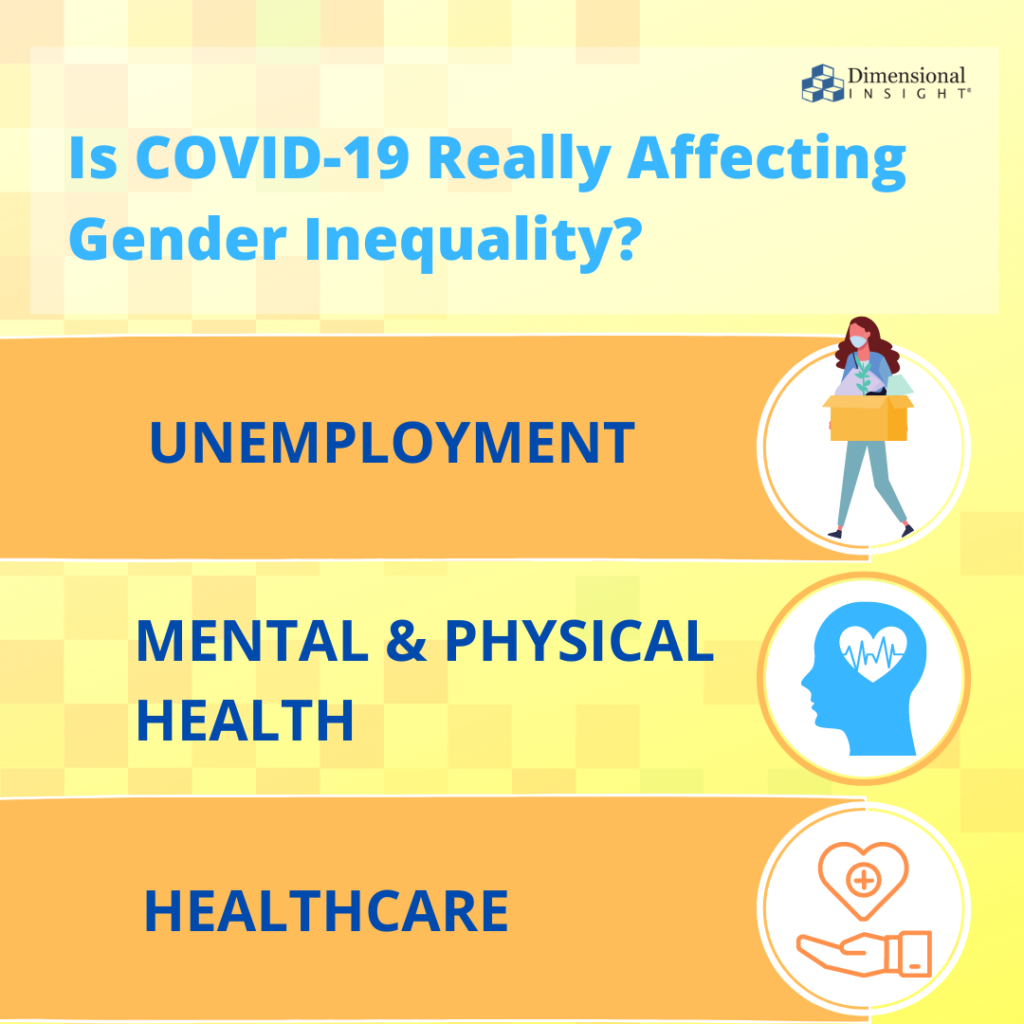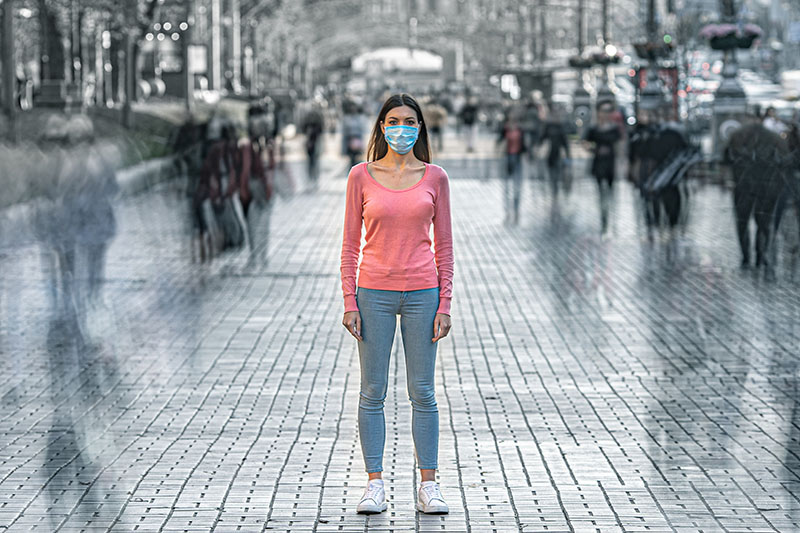Even with the COVID-19 pandemic continuing to affect the lives of all too many people around the world, topics such as racism and inequality remain at the forefront of conversations nowadays- as they should be. In a previous article, we discussed how racism is strongly tied to the healthcare system and how COVID-19 has only further proven that fact. Now we’ll also take a look at how the pandemic has impacted gender inequality.
Unemployment
One of the most harmful effects this pandemic has brought is widespread job loss. Individuals from all over the nation have been filing for unemployment, regardless of their background or status. However, women seem to be impacted even more than men due to pre-existing economic inequality.
In March alone, 1.4 million people in the United States lost their jobs, with women leading in a 0.9% increase in unemployment compared to a 0.7% increase for men. This pandemic is different from past economic crises as men typically take the lead in unemployment during recessions, since more men work in industries closely tied to economic cycles. Conversely, the COVID-19 pandemic has affected fields such as healthcare, hospitality, and education, all of which tend to have a high number of female employees, and all of which happen to put employees at greater risk for infection while also putting them at risk for unemployment due to shutdowns. So, in comparison, without a pandemic, it makes sense that men may take the unemployment fall in a recession, but with both a health and financial crisis, women take the fall for both.
In fact, research conducted by McKinsey showed that women’s jobs are 1.8 times more vulnerable to this crisis than men’s, and that global GDP growth could be “$1 trillion lower in 2030 than it would be if women’s unemployment simply tracked that of men in each sector”. A United Nations Foundations report found that “an estimated 740 million women globally work in the so-called informal economy which makes up 70 percent of women’s unemployment,” and these are often the first types of jobs to go during a financial crisis.
Mental and physical health
The COVID-19 pandemic has also been affecting many women’s physical and mental health. For example, domestic abuse has risen worldwide since the pandemic, and it’s only been getting worse. Domestic abuse is a public health crisis in and of itself, and the pandemic is seen as an opportunity for many abusers. Women and girls are particularly at risk for domestic abuse and when stay-at-home orders are in place, they are trapped in their homes with nowhere to go. And, while the financial crisis is still at large, many women’s shelters have been struggling to keep afloat.
Feng Yuan, a co-founder of Equality, a Chinese advocacy group, said that she “had one client who called an emergency line only to be told the police were too overstretched to help her. ‘We can come to your place after the crisis,’ she recounted the operator saying.” Similar situations have been occurring in Italy, Spain, France, the UK, and countless other countries, and governments needs to take such fatal occurrences into consideration when creating a plan during a pandemic. But as discussed, women and girls are more commonly at risk for domestic abuse, which of course puts them at an extreme disadvantage during pandemics such as COVID-19.
In relation to mental health, studies have shown that the pandemic has placed a heavy burden on parents, and particularly working mothers’ mental health. While stay-at-home fathers have increasingly become more common in families, a survey of over 1,100 people showed that “the vast majority of women questioned did more cooking, cleaning, laundry, childcare and education during lockdown than before, forcing them to de-prioritize paid work more frequently than their male counterparts. 46% felt nervous and stressed more than half of the time and only 15% of mothers said they had managed to set clear boundaries between work and family.” Working full-time or part-time, entertaining and educating children, running errands, completing tasks around the house, and balancing one’s personal life, all while in the midst of a pandemic, is the perfect combination of stressors that has often been negatively impacting [both] parents mental wellbeing, especially mothers.

Healthcare
Having access to modern contraceptives is not always as simple and easy as it should be, even in the United States. However, in places such as Latin America and the Caribbean, an estimated 18 million additional women will lose regular access to modern contraceptives during the pandemic due to factors such as supply chain shut downs. The United Nations Foundation emphasizes that in many places, “girls and women are less likely to have an education and are more likely to be illiterate.” As a result, they may not benefit from the public health messaging that is accessible, culturally appropriate and understandable.
200 million workers contribute to the health and social sector, and though there are many men that are a part of the front-line community at hospitals and healthcare organization, 70% of that workforce is women. And, according to the World Health Organization (WHO), half of women’s contribution to global health is unpaid. “Without action, health coverage expansion may be thwarted by a shortfall of 18 million health workers.” There has already been a gender pay gap long before COVID-19, not to mention the added gap among women of color. But during the pandemic, it’s especially important for all essential workers to receive fair and equal pay for putting their health at risk.
Although it’s 2020, it’s clear that there’s a lot of work to be done with the inequality and injustice that still exists across the globe. However, the COVID-19 crisis has brought a variety of important topics, such as racial injustice, to the center of conversation. Hopefully gender equality rises to the surface as well, because as a society we need to take one step forward and not two steps back.



